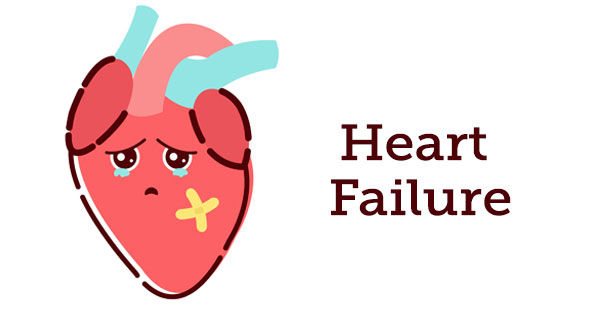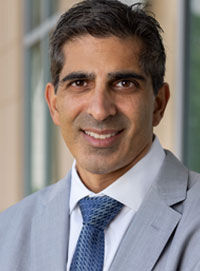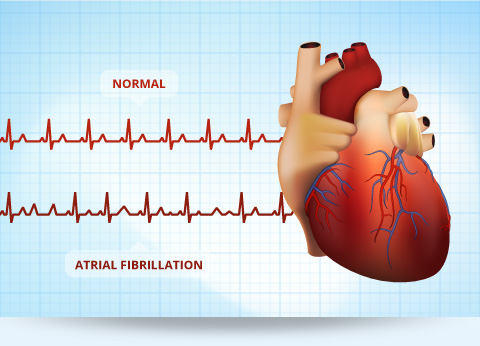Is Heart Failure Connected to Atrial Fibrillation & Mitral Valve Disease?
Written By: Adam Pick, Patient Advocate, Author & Website Founder
Medical Expert: Gorav Ailawadi, MD, Chair of Cardiac Surgery, Michigan Medicine
Page Last Updated: June 6, 2025
I just received a great question from Clay about mitral valve disease, atrial fibrillation and congestive heart failure. In his note, Clay asked me, “Hi Adam, I have congestive heart failure and mitral valve prolapse plus long-term atrial fibrillation (AFib). My question is whether-or-not congestive heart failure is connected with mitral valve prolapse? Thanks, Clay”


Dr. Ailawadi Says…
In response to Clay’s question, Dr. Ailawadi wrote:
Clay,
This is an excellent question. The short answer is congestive heart failure is commonly associated and caused by mitral valve disease and atrial fibrillation (AF), but the answer is a bit more complex. CHF, or congestive heart failure, is a syndrome where there is inadequate blood flow from the heart to the organs. This causes common symptoms of shortness of breath, fluid retention, and fatigue. There are many causes of CHF including valve problems, weakened ventricular function (low ejection fraction), and coronary artery disease/ myocardial infarction. We often consider it more of a symptom than anything else.
The mitral valve functions like two neighboring parachutes that open-and-close with each heart beat. Prolapse refers to the elongation of the cords of the valve (strings of the parachute). Prolapse can lead to varying degrees of valve dysfunction but in its most severe form causes severe mitral regurgitation (MR), where blood leaks from the left ventricle back to the left atrium and lungs. This causes congestion in the lungs and also causes symptoms of CHF.
Finally, AF is often caused by severe mitral regurgitation because as blood leaks it causes extra stress, pressure, and volume in the left atrium. AF even by itself can lead to symptoms of fatigue and shortness of breath.

In the past, we would suggest a patient be considered for correction of severe MR from prolapse (usually with surgical mitral repair) when they develop AF or any symptoms. Recently, however, the guidelines have changed and have become even more aggressive and recommend surgery even in asymptomatic patients if the risk is low and mitral valve repair is highly likely at experienced centers.
To summarize, the congestive heart failure, mitral valve prolapse, and atrial fibrillation are usually, but not necessarily caused by each other. Hope this helps! — Dr. Ailawadi
Thanks Clay! Thanks Dr. Ailawadi!
I want to thank Clay for his excellent question and I would like to extend a special thanks to Dr. Ailawadi for sharing his research and clinical experiences with our patient community!
Related Links:
Keep on tickin!
Adam
|
rubart says on April 6th, 2018 at 12:53 pm |
|
I’d like to relate one of Dr. Allawadi’s comments to my own experience, since it might help others in the same boat: “Recently, however, the guidelines have changed and have become even more aggressive and recommend surgery even in asymptomatic patients if the risk is low and mitral valve repair is highly likely at experienced centers.” I had a mitral valve prolapse for many years with no symptoms. When it finally turned “severe” and I was told I needed surgery, I dragged my feet because I was still asymptomatic. Ultimately I developed endocarditis from a bleeding gum. I almost certainly wouldn’t have developed it if my mitral valve was healthy. So that was my wake-up call, and I was *extremely* lucky and blessed not to have developed congestive heart failure too. Believe me, you *don’t* want CHF if you can possibly avoid it. So no matter how asymptomatic you are, if the diagnosis is severe and that you need surgery–DO IT! ASAP! (If you’re too old, or have other health issues, to make open heart surgery relatively safe for you, there’s TAVR now. Don’t make excuses for not getting it done.) As for Dr. Allawadi’s reference to “experienced centers,” what he means (I assume, because I’ve read this in so many places) is, you absolutely want your mitral valve repaired rather than replaced, if at all possible. So if a surgeon you’re considering says s/he can only replace it, you need to research surgeons who specialize in mitral valve repairs (I.e., “experienced centers”) and get some second opinions. Don’t just blindly accept replacement as your only option, until everyone agrees that it is. Before my own operation, my surgeon, who’s especially skilled in repairing mitral valves, told me, “I won’t know if I can repair it till I get in there.” But then he added, “I’ve repaired worse than yours.” Now I knew I was in the hands of an if-at-all-possible surgeon, and I felt incredible peace. (His first words to me after the operation were, “We repaired it.”) In short, do the grunt work! It’s your heart and your life, so take the initiative. And a special thanks to Adam for making this so much easier. |
 |













